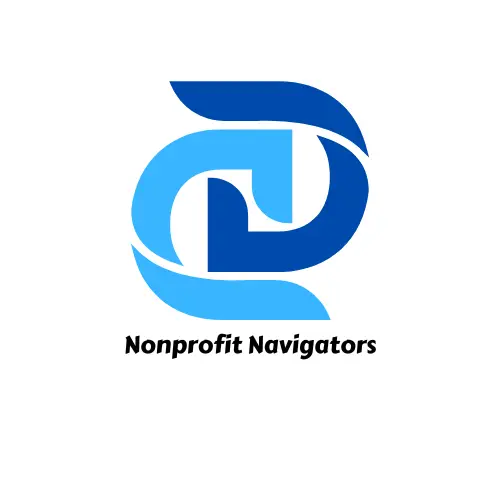Have you ever heard the buzz about cryptocurrency and wondered what all the fuss is about?
Maybe you’re curious about how this digital money could help your nonprofit achieve its mission more effectively.
Well, you’re in the right place!
Plus, don’t forget to subscribe to the Nonprofit Navigators Newsletter for more insights and tips to propel your organization forward!
What is Cryptocurrency?
Imagine a world where money isn’t printed on paper or minted as coins, but exists entirely online.
That’s cryptocurrency! It’s a type of digital or virtual currency that uses cryptography for security. Unlike traditional money issued by governments (like dollars or euros), cryptocurrencies operate on a technology called blockchain, which is like a public ledger that records all transactions.
How Does It Work?
Think of blockchain as a chain of blocks, where each block contains a bunch of transactions. Once a block is filled with data, it’s linked to the previous one, forming an unchangeable chain.
This system ensures that transactions are transparent, secure, and cannot be tampered with.
There are thousands of cryptocurrencies out there, with Bitcoin and Ethereum being the most well-known.
Each has its own unique features and uses, but they all share the common goal of providing a decentralized way to handle money and data.
Why Should You Care About Cryptocurrency?
You might be thinking, “Why should my nonprofit care about digital coins?” Great question!
Cryptocurrency offers several advantages that can be game-changers for nonprofits:
- Global Reach: Accept donations from anywhere in the world without worrying about currency exchange or high transaction fees.
- Transparency: Every transaction is recorded on the blockchain, making it easier to track where donations are going.
- Speed: Transactions can be completed faster than traditional banking methods, which is crucial for urgent funding needs.
The Benefits of Cryptocurrency for Nonprofits
1. Expand Your Donor Base
One of the biggest advantages of accepting cryptocurrency is the ability to tap into a global pool of donors.
Cryptocurrencies are borderless, meaning anyone with internet access can contribute to your cause, regardless of their location.
This opens up new fundraising opportunities and allows your nonprofit to reach supporters who prefer using digital currencies.
2. Lower Transaction Fees
Traditional payment methods, like credit cards and bank transfers, often come with hefty fees that can eat into your donations.
Cryptocurrency transactions typically have lower fees, meaning more of the donated money goes directly to your programs and services.
This efficiency can make a significant difference, especially for smaller nonprofits with limited budgets.
3. Enhanced Transparency and Trust
Trust is the foundation of any nonprofit. Donors want to know that their contributions are being used effectively and responsibly.
Blockchain technology provides unparalleled transparency, as every transaction is publicly recorded and cannot be altered.
This transparency builds trust with your donors, showing them exactly how their money is being used to make a difference.
4. Faster Donations
In emergencies or urgent situations, time is of the essence. Cryptocurrency transactions can be processed much faster than traditional banking methods, which can take days to clear.
This speed ensures that your nonprofit can access the funds it needs quickly to respond to critical needs and opportunities.
4. Innovative Fundraising Opportunities
Cryptocurrency opens the door to innovative fundraising methods.
For example, you can create your own cryptocurrency tokens to engage your community, run blockchain-based fundraising campaigns, or even participate in decentralized finance (DeFi) projects that align with your mission.
These creative approaches can set your nonprofit apart and attract tech-savvy supporters.
How to Get Started with Cryptocurrency in Your Nonprofit
1. Educate Yourself and Your Team
Before diving into cryptocurrency, it’s essential to educate yourself and your team about how it works and the potential benefits and risks.
Attend webinars, take online courses, and read up on the latest trends in the crypto space.
Understanding the basics will help you make informed decisions and effectively integrate cryptocurrency into your fundraising strategy.
2. Choose the Right Cryptocurrencies to Accept
With thousands of cryptocurrencies available, selecting the right ones for your nonprofit can be overwhelming. Start by focusing on the most widely recognized and stable options, like Bitcoin and Ethereum.
These currencies have established infrastructure and are more likely to be trusted by donors.
As you become more comfortable, you can explore additional options that align with your mission and donor preferences.
3. Set Up a Secure Wallet
A cryptocurrency wallet is where you store your digital assets. There are different types of wallets, including hardware wallets (physical devices that store your crypto offline) and software wallets (applications or online services).
For nonprofits, a hardware wallet is often recommended for enhanced security, ensuring that your funds are safe from cyber threats.
4. Integrate Cryptocurrency into Your Donation Platforms
To start accepting cryptocurrency donations, you’ll need to integrate crypto payment options into your donation platforms.
Many nonprofits use platforms like BitPay, Coinbase Commerce, or GiveCrypto to facilitate donations.
These services allow donors to contribute using their preferred cryptocurrency and often provide tools to convert crypto to traditional currencies if needed.
5. Promote Your Crypto-Friendly Donation Options
Once you’re set up to accept cryptocurrency, let your supporters know! Update your website with information about how to donate using crypto, share posts on social media, and include crypto donation options in your fundraising campaigns.
Highlight the benefits, such as lower fees and enhanced transparency, to encourage more donors to contribute using digital currencies.
6. Stay Compliant and Secure
Navigating the regulatory landscape of cryptocurrency can be tricky, as laws vary by country and are constantly evolving.
It’s crucial to stay informed about the latest regulations and ensure that your nonprofit remains compliant.
Additionally, prioritize security by implementing strong cybersecurity measures and regularly reviewing your wallet’s security protocols.
7. Engage with the Crypto Community
The cryptocurrency community is vibrant and full of passionate individuals who are eager to support meaningful causes.
Engage with this community by participating in crypto-related events, forums, and social media groups.
Building relationships within the crypto space can lead to new partnerships, increased visibility, and a steady stream of donations for your nonprofit.
Ready to Navigate the Nonprofit World with Us?
Embracing cryptocurrency can open up a world of possibilities for your nonprofit, from expanding your donor base to enhancing transparency and efficiency.
While it might seem daunting at first, taking small steps to understand and integrate crypto into your strategy can yield significant rewards.
Stay ahead of the curve and ensure your nonprofit thrives in the digital age!
Subscribe to the Nonprofit Navigators Newsletter today for more tips, insights, and resources to help your organization navigate the ever-changing landscape of nonprofit management and fundraising.

